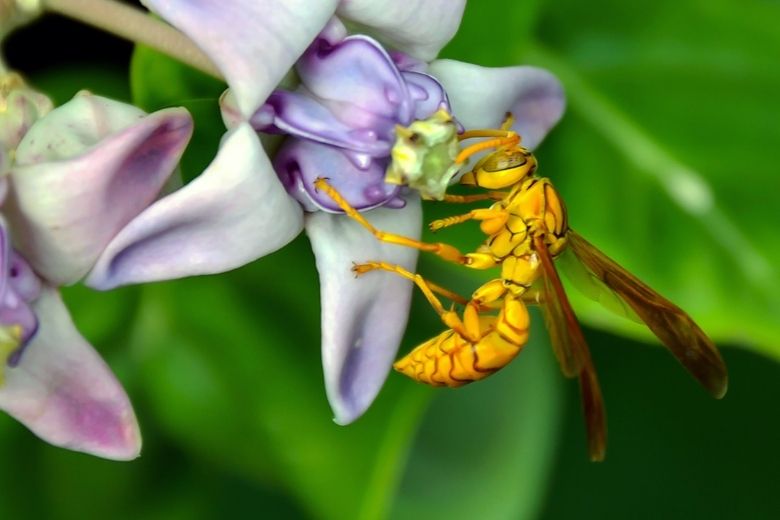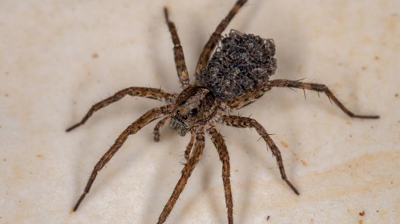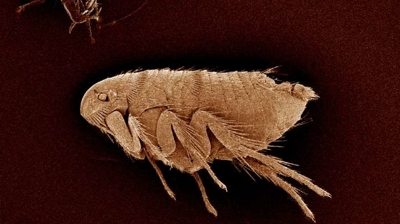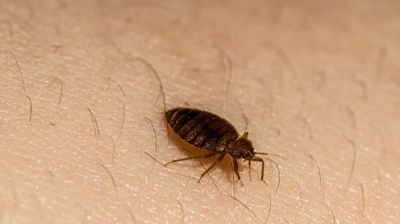
Executioner Wasps

Are Executioner Wasps Harmful?
Executioner paper wasps (Polistes carnifex), while not as widely known as yellowjackets or hornets, can be considered harmful in several ways, particularly due to their aggressive behavior and potent sting:
- Painful and Toxic Sting: Executioner wasps are known for delivering one of the most painful stings among wasp species. The venom can cause immediate intense pain, swelling, and redness at the sting site. While not typically deadly to healthy adults, their sting can trigger allergic reactions in sensitive individuals, potentially leading to anaphylaxis, which is life-threatening without prompt treatment. Multiple stings, such as from disturbing a nest, can increase systemic reactions, including nausea, dizziness, and fever.
- Aggressive Nest Defense: These wasps are highly protective of their nests. Any perceived threat can provoke repeated stings. Nests are often built in sheltered areas like eaves, under rooflines, or on shrubs, putting humans, pets, and livestock at risk if disturbed.
- Potential Damage to Property: While paper wasps generally don’t chew through structural materials, their nests can accumulate in gutters, eaves, or other parts of buildings. Over time, large nests can clog gutters or damage paint and wood surfaces when removed improperly. Attempting DIY removal without proper precautions increases the risk of multiple stings.
- Impact on Outdoor Activities: Their presence can restrict safe use of outdoor spaces such as patios, gardens, or playgrounds. Families with children or pets are particularly vulnerable. People who are unaware of a nest nearby may accidentally provoke the colony, leading to a swarm attack.
- Allergic Reactions and Health Risks: Even a single sting in someone allergic to wasp venom can result in severe systemic reactions. For children, elderly, or immunocompromised individuals, stings can pose serious health risks beyond localized pain.
Executioner paper wasps are considered harmful mainly due to their painful, venomous sting, aggressive behavior when defending nests, potential allergic reactions, and the risk they pose to humans and pets in areas where they nest. While they are not typically destructive to buildings, the risk of stings alone makes our professional removal or careful management advisable.
What Do Executioner Wasps Look Like?
Executioner wasps (Polistes carnifex) are striking and relatively large paper wasps native to Central and South America:
- Size: They are among the largest paper wasps, with adults reaching about 2–3 centimeters (0.8–1.2 inches) in length.
- Coloration: Their bodies are mostly bright yellow and brown, with the yellow often appearing as vivid stripes or patches on the abdomen and thorax. Some individuals may have reddish-brown tones as well.
- Head and face: Their heads are large relative to their bodies, often with prominent yellow markings around the face and eyes.
- Antennae: Like other wasps, they have long, slender antennae, usually brown or reddish.
- Wings: Their wings are transparent to slightly amber-colored and folded longitudinally at rest, typical of paper wasps.
- Legs: Their legs are long and slender, often yellowish, dangling visibly during flight.
- Abdomen: The abdomen is narrow and elongated, with a slightly pointed end. The characteristic yellow-and-brown pattern is often very vivid, making them easy to identify among other wasps.
Visually, they resemble other paper wasps in body shape but stand out due to their large size, bright yellow markings, and robust appearance, giving them a somewhat intimidating look—hence the name “executioner wasp.”
Where Are Executioner Wasps Found?
Executioner wasps (Polistes carnifex) have specific habitat preferences, and knowing these can help you understand where you’re most likely to encounter them:
Geographic Range
Native to Central and South America, particularly from Mexico through Central America to northern South America. They are not native to the U.S., though southernmost Mexico sees higher populations.
Preferred Habitats
- Tropical and subtropical forests: They thrive in humid, warm environments with abundant flowering plants. Forest edges, clearings, and secondary growth areas are ideal because these provide both nesting sites and foraging opportunities.
- Human-modified areas: Executioner wasps will often build nests under eaves, in attics, under roofs, or in other sheltered parts of buildings. They may also nest in barns, sheds, or other structures that provide protection from rain and direct sunlight.
- Vegetation-based locations: Nests are sometimes built on tree branches, shrubs, or tall plants, usually several feet above the ground. They prefer open, exposed branches rather than dense foliage so they can easily defend the nest.
Nesting Characteristics
Executioner wasps construct paper-like nests, usually small, single-layered, umbrella-shaped with exposed hexagonal cells. Nests are typically located in sheltered areas with overhead protection, like roof eaves or tree branches under a canopy.
Activity Patterns
Most active during the day, especially in the morning and late afternoon when foraging for nectar or prey. They can become aggressive if their nest is disturbed, which is why they’re considered one of the more dangerous paper wasps.
You’re most likely to find executioner wasps in tropical/subtropical areas of Central and South America, nesting in sheltered, elevated spots like under eaves, on branches, or near human structures, particularly where there’s proximity to flowering plants or other insect prey.
What Do Executioner Wasps Eat?
Executioner wasps (Polistes carnifex) are predatory social wasps with a diet that is fairly typical of paper wasps, combining protein for their larvae and sugars for the adults:
Protein Sources (for larvae)
Adult executioner wasps hunt insects and other small arthropods to feed their developing larvae.
Common prey includes:
- Caterpillars
- Crickets and grasshoppers
- Other soft-bodied insects (like flies, moths, and aphids)
The adults chew the prey into a pulp and feed it directly to the larvae in the nest. Protein-rich prey is essential for larval growth and for the production of new adult wasps.
Sugars and Carbohydrates (for adults)
Adult executioner wasps do not consume solid prey; instead, they rely on sugar sources for energy. Common sources include:
- Nectar from flowers
- Plant sap or honeydew (a sugary secretion from aphids)
- Overripe or damaged fruit
These sugars fuel flight, nest building, and hunting activity.
Opportunistic Feeding
While adults primarily forage for nectar, they may also scavenge sugary liquids or juices near human activity. They are not generally aggressive toward humans for food, but disturbances near their nests can provoke stings.
Executioner wasps are protein hunters for their larvae and nectar/juice feeders for themselves, balancing predation and pollination behavior. Their diet helps maintain both the colony’s growth and the adult wasps’ energy needs.
Executioner Wasp Life Cycle
The life cycle of executioner wasps (Polistes carnifex) follows the typical pattern of social paper wasps, with clear stages from egg to adult and a strong colony structure:
- Colony Initiation: The queen is the founder of the colony and emerges after overwintering (or after a dormant season in tropical regions, it may be year-round). She begins the nest alone, typically in a sheltered location, like under eaves, branches, or other protected surfaces. Early on, she lays the first eggs and tends to the initial brood herself.
- Egg Stage: Eggs are laid individually in hexagonal cells of the paper nest. They are small, oval, and creamy-white. Duration: ~5–7 days depending on temperature and humidity.
- Larval Stage: After hatching, the larvae are fed chewed-up protein (usually insects and other arthropods) by the queen. Larvae are legless, grub-like, and grow quickly. Duration: 10–14 days, but can vary with environmental conditions.
- Pupal Stage: Once larvae reach full size, they spin a silken cap over their cell and pupate. During this stage, the larva transforms into an adult wasp, developing wings, legs, and other adult features. Duration: 7–10 days.
- Adult Stage: Workers emerge first (from the first batch of eggs) and begin foraging for food and expanding the nest, taking over care of subsequent larvae. Later eggs develop into reproductive males and new queens, usually toward the end of the colony cycle. Adults feed on nectar, honeydew, or other sugars, and continue hunting prey for the larvae. Lifespan: Workers live a few weeks to a few months, while queens can live up to a year, depending on species and environmental conditions.
- Colony Decline: In tropical species like P. carnifex, colonies may persist for several months, sometimes year-round in favorable conditions. Once the new queens and males leave to mate, the old colony gradually dies off, including the original queen and workers.
Executioner wasps’ aggressive nature and large size mean that their nests can grow quickly if undisturbed, making early detection and management important for safety.

Hear From Our Happy Customers
-
"Great Communication"
Tech was on time, communication was great, and he accommodated my needs.
- Alonzo W. -
"Fantastic & Patient"
Jarvis was fantastic and patient. He answered my questions with an in-depth explanation and addressed all of my areas of concern. Would love for him to be my assigned tech going forward. Well done!
- Yonnette M. -
"Very Knowledgeable"
The tech that arrived was courteous, professional, and very knowledgeable. He was Great.
- Uerial I. -
"Exceeds Expectations"
I can’t say enough positive things about this company... The tech that came out, Jarvis went above and beyond my expectations. Thank you guys, I will continue using your services.
- Jake M. -
"Wonderful Service"
Wonderful service. Jarvis is great. Took care of everything I needed. Thank you!
- Henry P. -
"Professional & Considerate"
I’m pleased with Miche services. Jarvis came today. Professional and considerate. Thank you!
- Judy B.



